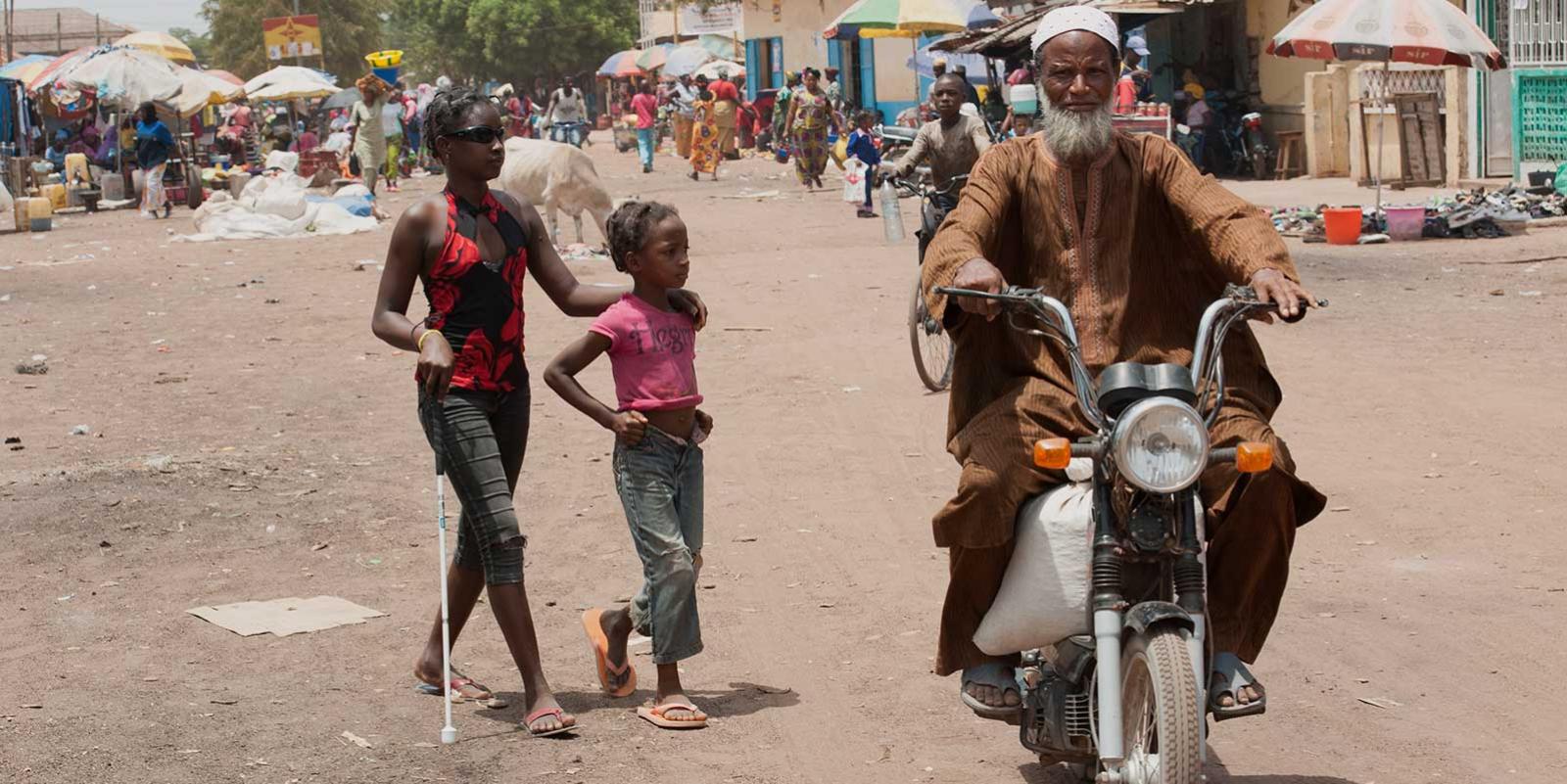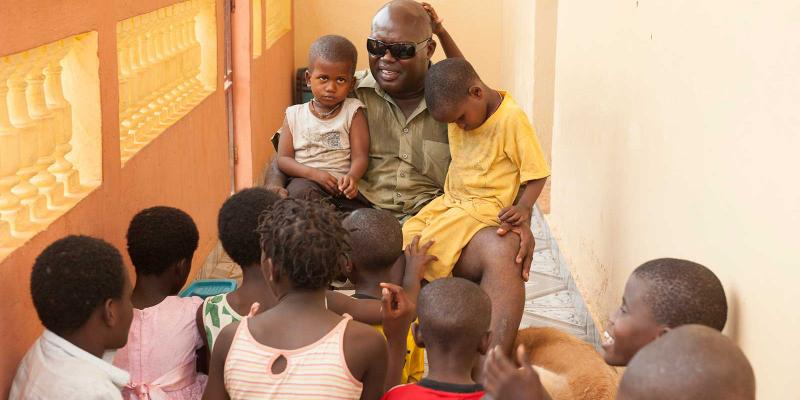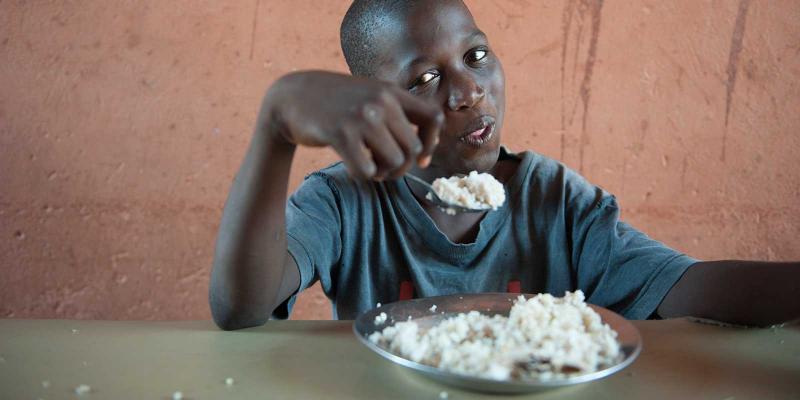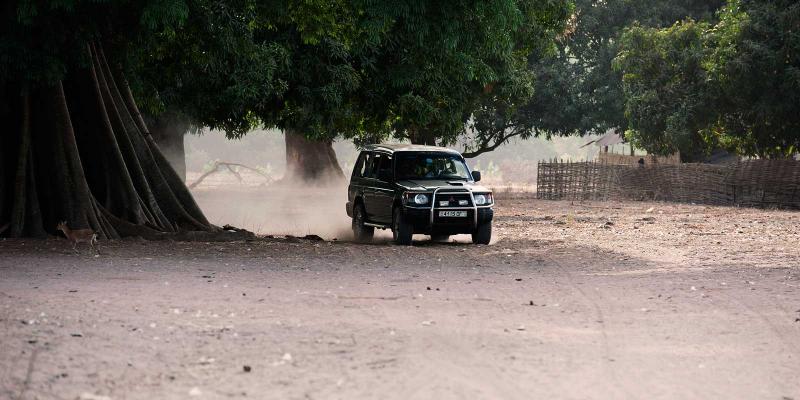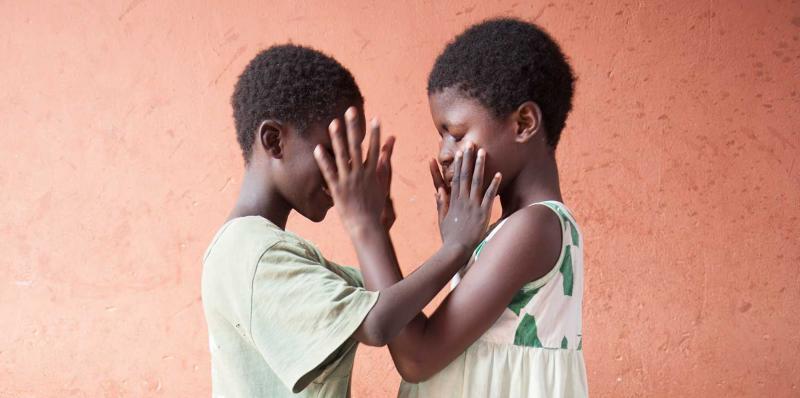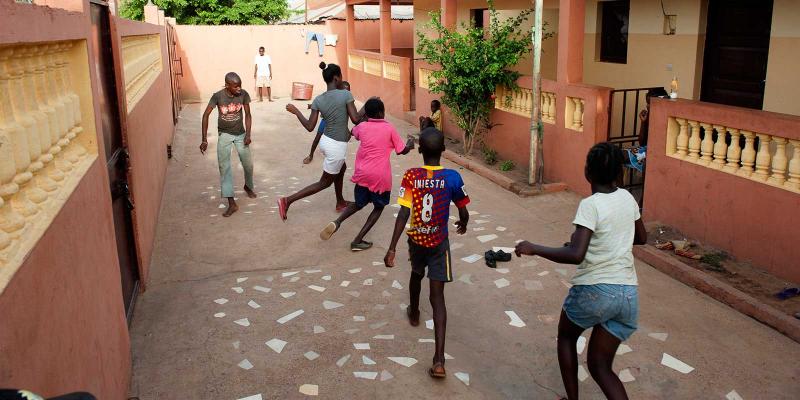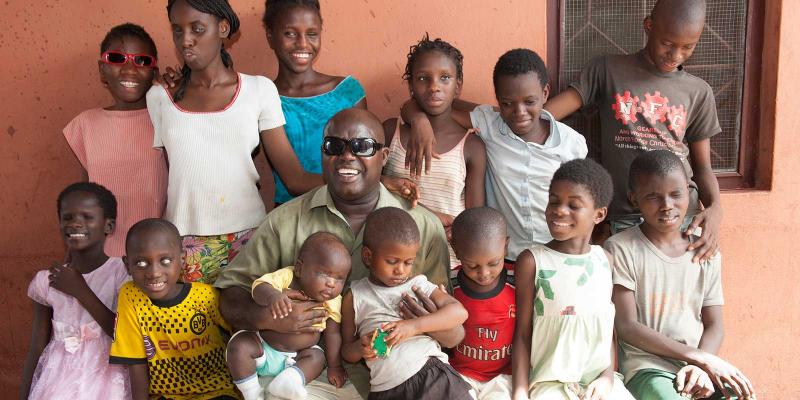“First I lost my parents. Then I lost the sight in both eyes. All my dreams were shattered. But Manuel gave me the chance of a better life. Now I feel like I can do whatever I want with my life!” says Isabel, 14.
Isabel has moved from Manuel’s centre to live with her aunt’s family in the small town of Gabú. She became the first child with a disability to attend the mainstream school there, along with all the other children in the town. That is Manuel’s dream for the lives of all the children he takes care of. “I grew up with my mother in a small village. My father died when I was a baby. My mother sold palm oil and vegetables at the market. We never had enough food, but my mother loved me so much. My mother was ill too, and she got worse and worse. Often I did the cleaning and the laundry and went to the market to sell our produce, because my mother wasn’t well enough. Sometimes I was so afraid it made me cry. My mother was all I had. One day when I was out playing with my friends, my worst nightmare came true. A neighbour came running to tell me that my mother was dead. I rushed home and saw that our house was full of people crying. I slipped into my mother’s bed and hugged her tight. I couldn’t stop crying.
Became blind My uncles lived nearby with their families, so I was not completely alone. But they were very poor and there was never enough food for everyone. I had also fallen ill, but they didn’t take care of me. I just lay there in a corner, feeling excluded. I felt that they didn’t love me. My aunt Djenabo found out how things were, and brought me to live with her and my grandmother here in Gabú. I started school, and I had enough to eat. But I still felt poorly and I had pain all over my body. It got so bad that I couldn’t walk. I was starting to get confused, so my aunt took me to hospital. One day as I was lying there, all of a sudden I couldn’t see. I panicked and screamed, but there was nothing the doctors could do. I had become blind. In both eyes.
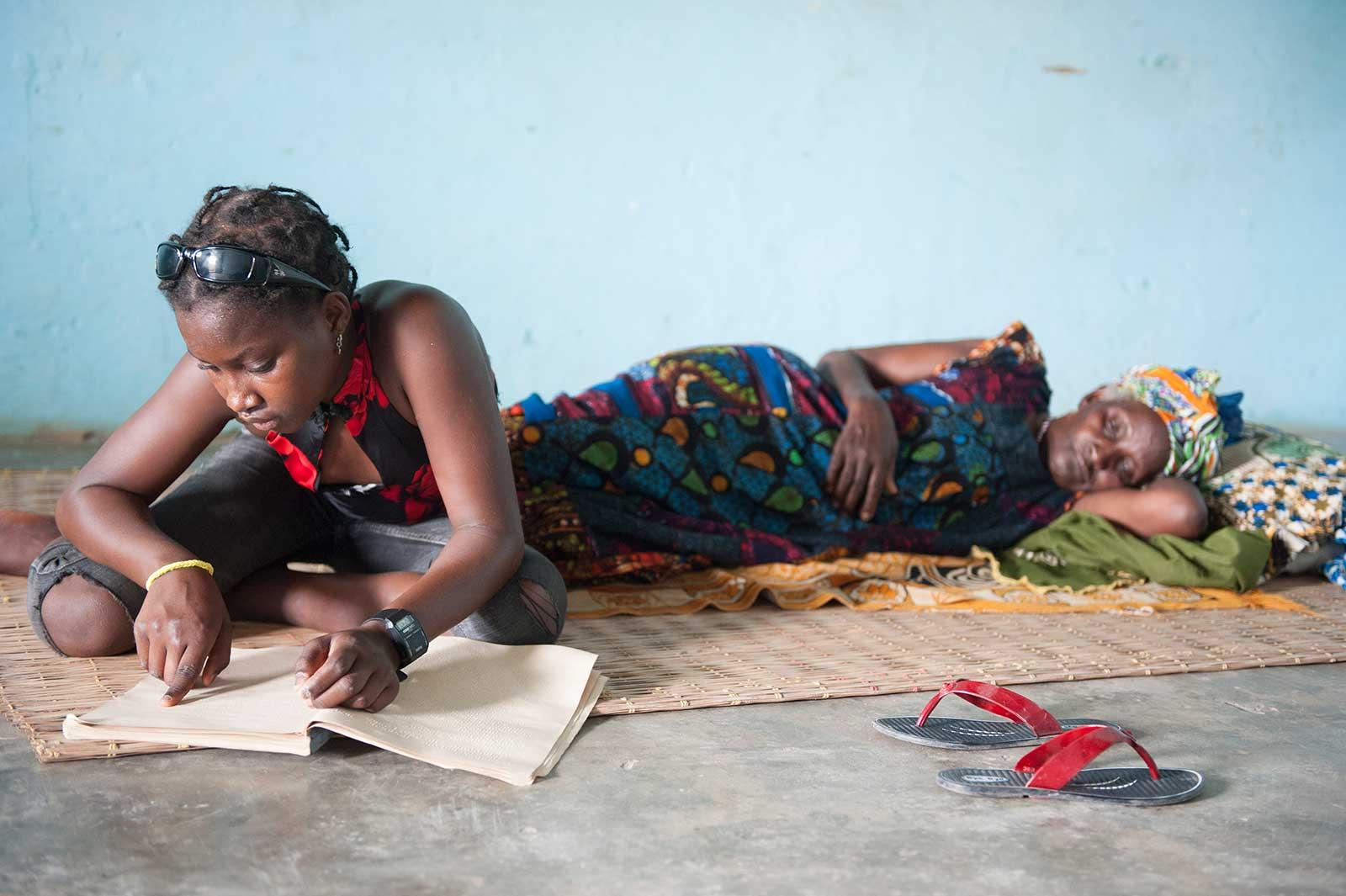
Isabel, 14 Loves: Going to school. Hates: Being forced to stay at home, feeling worthless. Best thing that’s happened: That Manuel helped me. Worst thing that’s happened: That I have lost so much in my life. Looks up to: Manuel! Wants to be: Something important. Dream: To mean something.
Shattered dreams My first thought was that everything was over. There was no chance I could continue at school. I had planned to do as well as possible in school, so that I could become a doctor, teacher, or something else important. To be able to earn money and support myself and my family. Now all my dreams had been shattered. How would I survive? I just cried and cried. Things had turned out every bit as bad as I had feared. I couldn’t go to school. All I could do was lie at home. Even my family thought a blind child was no use to any one. For months I just lay there. Idle, alone and with no friends. My aunt and my cousin Fatinja washed me and changed my clothes. They even fed me. I felt completely worthless.
Came to Manuel When I had been lying there like that for three months, a man came to our house and introduced himself as Manuel. He said, ‘I’m blind like you. I can help you. If you come with me to Bissau you can start school again. And when you’re finished your education you’ll be able to apply for a good job and start working like everyone else. Look at me. I’m blind but I can do it. But you’ll have to fight hard.’ I wasn’t entirely convinced by what he said, but I felt I was prepared to take the chance. Manuel talked to my family too. They had never heard that blind people could go to school, read, write, count and help out at home, and they found it hard to believe. But after meeting Manuel they realised it could be true. First, Manuel took me to the hospital in the capital to get me the right medication, not to be able to see but to make my body healthy. Then I moved into Manuel’s centre.
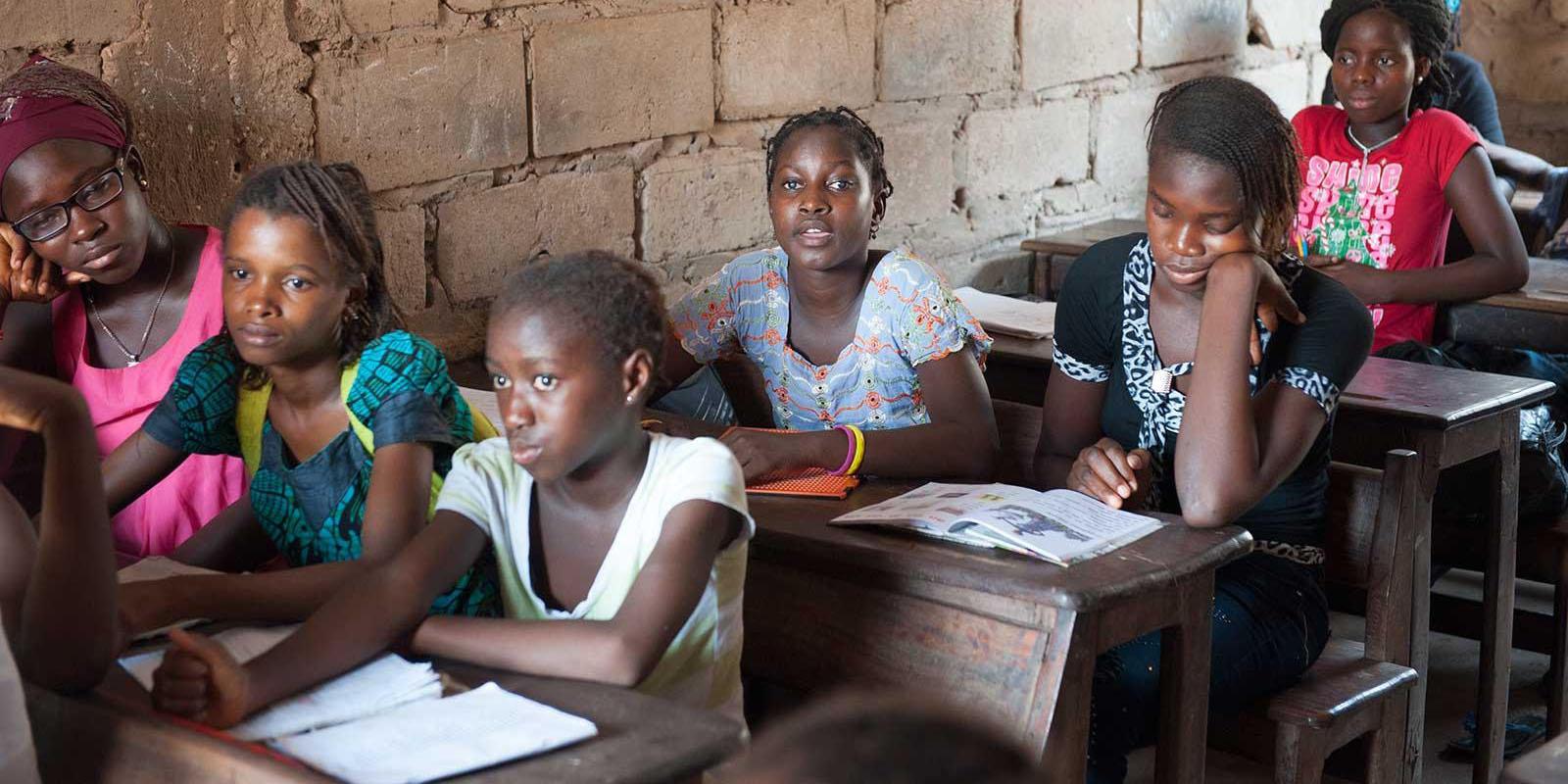
Not alone I met many more blind children at the centre. Before that I thought I was the only one who had had a hard life. Now I was meeting lots of people with similar problems, and that helped me realise I was not alone. We played, danced and sang together. At the centre I learned to wash clothes and dishes, clean up, wash myself and take care of younger children. I learned some basic cooking skills, and how to serve others. All of a sudden, I was not this worthless person who couldn’t do anything because I was blind. I became more like an ordinary person again. At the same time I started attending Manuel’s school. I learned to read, write and count by learning braille. It felt fantastic, and I was so happy!
Home again After a couple of months, Manuel explained that his organisation AGRICE had helped to make changes to a school in my hometown, so that blind children could attend alongside all the other students. Their work included training teachers to use braille. He also told me that he had visited my family and prepared them for me to move back home. Although I was happy at Manuel’s centre, I wanted to go back to my family. I missed everyone. Now I’ve been back home for almost a year. There is a lot of love in my family and I help out with almost all the housework. I feel like a real family member, participating and doing chores. And I’m getting on well at school! I’m settled in my class and I have lots of friends. It’s great to go to school with both blind children and children who can see. I think that those of us who have disabilities should be able to go to mainstream schools and live with our families. After all, we are part of society and we want to live alongside everyone else! In the future I want to do something significant, like become a teacher. After my time with Manuel, I think I could probably achieve just about anything!”
Related stories
Långgatan 13, 647 30, Mariefred, Sweden
Phone: +46-159-129 00 • info@worldschildrensprize.org
© 2020 World’s Children’s Prize Foundation. All rights reserved. WORLD'S CHILDREN'S PRIZE®, the Foundation's logo, WORLD'S CHILDREN'S PRIZE FOR THE RIGHTS OF THE CHILD®, WORLD'S CHILDREN'S PARLIAMENT®, WORLD'S CHILDREN'S OMBUDSMAN®, WORLD'S CHILDREN'S PRESS CONFERENCE® and YOU ME EQUAL RIGHTS are service marks of the Foundation.



